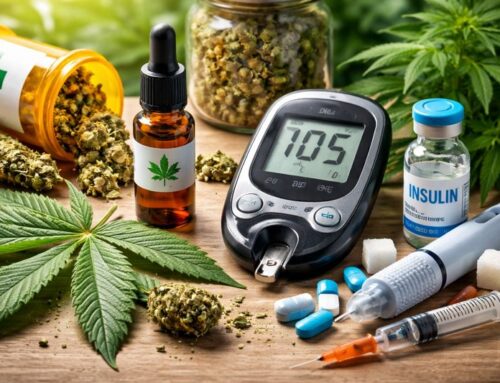Medical marijuana is becoming more and more widely acceptable, as well as legal in several states so knowing the recommended dose and techniques of administering becomes crucial for those wanting to treat various conditions. Here at EZMedcard, we provide you with the most up-to-date resources on medical marijuana and how it can best benefit your overall well-being.
Medical Marijuana Dose Explained
Finding the sweet spot of a medical marijuana dose is key to provide maximum therapeutic benefits while minimizing unwanted effects. Here are a few important takeaways:
Low and Slow: This is the first rule of dosing medical marijuana. Start low and titrate up until you have the right amount to control your symptoms without having side effects.
Seek Guidance from an Expert: Visit expert medical marijuana doctors who can suggest personalized dosage. Our steps are ready to walk you through the free medical cannabis doctors near me on EZMedcard.
Monitor: Take notes of symptoms and how you feel now. This will help your doctor to get necessary adjustments for you in the dosage.
How Medical Marijuana is Delivered
Medical marijuana comes in different forms, each offering its own benefits and onset times. Some of the most usual delivery methods:
Smoking or Vaping (Inhalation):
Pros: Effects within minutes
Cons: There is a risk of respiratory issues from smoking, Vaping devices can get expensive.
Ideal for: Relief of acute symptoms, e.g. sudden pain or nausea
Edibles:
Pros: Long-lasting effects, stealthy and simple to take.
Cons: Delayed Effect Onset (30 minutes to 2 hours), More Difficult Dosage Control.
Top Use Case: When the condition you are treating is so chronic that it requires ongoing symptom relief.
Tinctures:
Pros: Quick on-set when sublingual, easily dose-able.
Cons: Taste may be unpleasant, varying effects depending on mode of ingestion.
Ideal For: Patients who need quick relief, but not at the expense of control.
Topicals:
Benefit: No psycho-active effect, material directly applied to the affected area.
Cons: Effects may not be as long lasting, Limited to localized relief
Ideal For: Local pain, inflammation and skin conditions.
Capsules and Pills:
The Good: Easy titration, integrative admin. into daily life
Cons: Slow acting like edibles, tough to titrate dose.
Ideal for: Patients seeking a familiar and steady form of medication.
Transdermal Patches:
Pros: Medication is released over time, no need to swallow down medication
Cons: Can irritate the skin for some users, more expensive.
Ideal For: Patients requiring steady medication levels long-term.
How to Find Mississippi Medical Marijuana Doctors
Mississippi Patients should ensure that they sign up with a licensed and reputed medical marijuana doctor. Whether you are in Hattiesburg, Meridian or elsewhere here at home our goal is to help with EZMedcard. Our online Mississippi medical marijuana doctors provide access to care at your fingertips.
Residents of Hattiesburg have access to qualified medical marijuana doctors who are familiar with our community. Our experienced doctors also offer personalized treatment plans for patients in Meridian.
Conclusion
At EZMedcard, we are committed to making sure that you have everything you need so the decisions about your health will be informed ones. Whether you require a medical marijuana doctor in Mississippi or are seeking to get your card for medical marijuana in Hattiesburg, MS, we can be of help.
Manage your health with EZMedcard — Your Reliable Medical Marijuana Home Care Partner. Call us today to find out more about what we offer and how it will help you improve your health and wellness.
FAQ
How does medical cannabis work?
The cannabinoids in medical marijuana interact with receptors in the body's endocannabinoid system, which regulates processes like pain, mood, appetite, and immune response. By influencing these functions, medical cannabis can alleviate symptoms associated with certain medical conditions.
What conditions can medical marijuana be used for?
Medical marijuana is commonly prescribed for chronic pain conditions such as arthritis, fibromyalgia, and multiple sclerosis. It's also used to reduce seizures in epilepsy patients, alleviate symptoms of cancer (e.g., nausea, pain), manage anxiety and depression, and treat PTSD.
What is the legal status of medical marijuana?
Medical marijuana is legal in 32 states and Washington D.C. However, it remains illegal under federal law. Patients in states where it's legal can obtain a Medical Marijuana Card (MMJ Card) after consultation with a licensed medical marijuana doctor and approval from the state's medical marijuana program.
How can I get a Medical Marijuana Card (MMJ Card)?
To get an MMJ Card, you need to:
- Schedule a consultation with a licensed medical marijuana doctor.
- Discuss your medical history and symptoms to determine eligibility.
- Receive a prescription or recommendation from the doctor.
- Apply for the MMJ Card through your state's medical marijuana program.
- Once approved, you can purchase medical marijuana from licensed dispensaries.
What are the benefits of medical marijuana?
Medical marijuana offers benefits such as pain relief for chronic conditions, anti-inflammatory effects, potential improvements in brain health (e.g., anxiety, PTSD), and appetite stimulation for patients with reduced appetite due to medical issues.
What are the risks associated with medical marijuana?
Risks include THC-induced intoxication (euphoria, impaired coordination), potential dependency with long-term use, legal considerations (varies by state and federal law), and side effects like dry mouth, dizziness, and changes in mental status.





